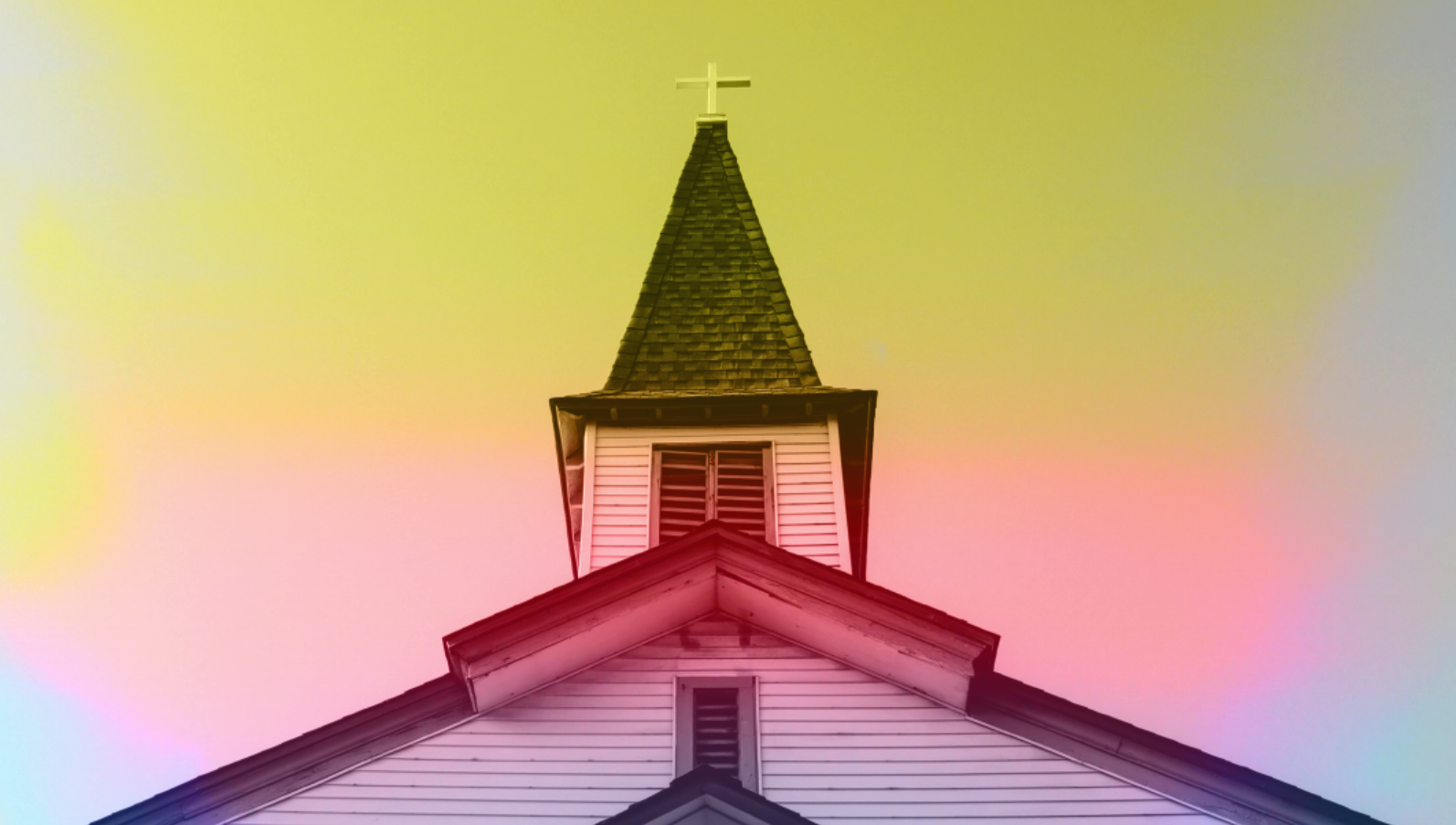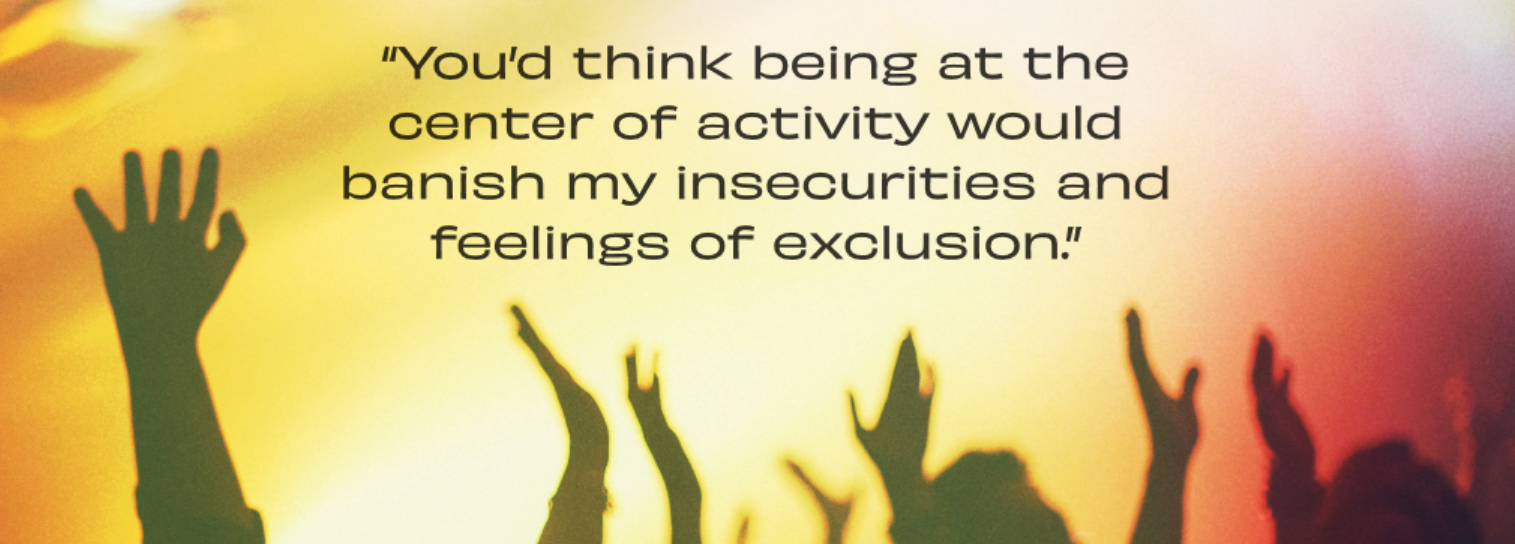Lessons I Learned From My Christian Communities (and how I'm revising my notes)
By Maria Abraham Chen
I have been part of Christian community my whole life. Growing up, I attended two Indian Orthodox Christian churches[1] and joined an Evangelical fellowship while away at college. After getting married in November 2024, I began attending my husband’s Evangelical, Chinese church. My husband Sam grew up in this church and has been serving in the English-speaking worship and youth ministries for several years now. I’ve come to understand how much he values his church members as family, truly brothers and sisters in the faith, but initially I was puzzled by this. I didn’t have the same emotional ties to my previous churches, so when I joined Sam’s community, I often contemplated why that was so.
Unsurprisingly, church hurt/religious trauma was at the heart of my emotional distance, and upon further examination, I can clearly pick out the “hard lessons” I learned from my interactions with fellow Christians. Most experiences have left me jaded, bitter, and doubtful that I belong in a fixed Christian community like church. But some have revealed God’s love, faithfulness, and grace so clearly that it gives me hope for the day that we attain a more perfect unity in Christ. I share the following, knowing that I’m still in the process of reframing my ingrained hurts and beliefs:
From my childhood church, I learned that…
I can only rely on my family for support. I had come to this conclusion after many instances of feeling discouraged by adults and excluded by my peers. Some adults intentionally invested in the spiritual growth of the kids and youth, but many more fostered a harmful spirit of competition and comparison among themselves and their children. To share personal accomplishments and struggles alike invited the judgment of others; oddly, a person would be perceived as prideful or attention-seeking in either case. At some point, I learned to share very little of my life and thoughts with people at church. I could trust my actual family members to love, counsel, and protect me, despite our individual shortcomings and conflicts, but my church? “Brothers and sisters” with whom I could be vulnerable and real? Give me a break.
Gossip is poisonous. Some pretty deep wounds were caused by church members who decided to gossip about our family during a difficult time. While the gossip wasn’t very widespread, my parents did find out about it and the fallout was bad. As a child, it was so, so damaging to witness others bully and isolate the adults I looked up to and loved. Even worse, I knew at the time that there was no immediate apology from the church members involved, nor accountability, and felt betrayed on my family’s behalf. Words, and the absence of the right ones, indeed inflict harm.
From my second church (before college), I learned that…
One friendly face can be enough. My parents decided to change churches around my sophomore year of high school. This frustrated me because I couldn’t trust that a new congregation would make me any more comfortable than our former one. So I walked into my first service with a closed mind and heart, resigning myself to tolerating this new community for however long. But when I joined the high school Sunday School class, the teacher greeted me warmly with a genuine smile and invited me to participate in conversation. His welcoming attitude impressed and comforted me, inspiring my desire to be that friendly face for someone else.
From my college fellowship, I learned that…
God’s Church is meant to be a multilingual, multicultural community. I’ve attended Presbyterian, Lutheran, and non-denominational services before, but being in a college fellowship that hosted students of all denominations and ethnicities was new and spiritually enriching for me. I was moved when we sang multilingual worship songs and when I heard people pray in their native languages. I had thoughtful conversations about spiritual practices and traditions different from my own. I felt that God was showing me His vision of the Church.
“Brothers and sisters” don’t have to be “friends”, but it would be nice. Our fellowship was a good community, but certainly not a perfect one. I saw members disagree with each other and have personal falling-outs; I also dealt with relational conflict. I expected to be casual or close friends with everyone—“loving my neighbor as myself”—but sometimes, personalities don’t mesh well. When I’m around believers who I’m neither friends nor enemies with, I figure I can love them best by praying for and with them, acknowledging they are God’s well-loved creation like me.
Being a ministry leader didn’t fully stop me from feeling like an outsider. I held a few leadership positions in our fellowship. You’d think being at the center of activity would banish my insecurities and feelings of exclusion. Well, it almost did. My network within the fellowship expanded, but my closest friends were on the periphery of it. And as a ministry leader, I had priorities, responsibilities and a vision to uphold that were different from those of a casual member. It was lonely, shouldering those weights and experiencing burnout for the first time.
From my second church (after college, during COVID), I learned that…
I do not have to carry my family’s hurt as my own. Despite hanging out with an Evangelical crowd, I gained appreciation for my Orthodox faith during college, finding the theology and practices meaningful. However, when I returned home, I was still wary of rejoining the church – not only because I was absent for four years, but also because my family members continued to struggle with their place in the congregation. Of course this grieved me, but my perspective on dealing with these circumstances had shifted. It was okay to share in my family’s hurt, but it wasn’t healthy to use that hurt as a barrier to participation in communal worship. Instead, I could choose to let go, trusting that God would strengthen my spirit and grant me patience and peace. As I adopted this new mindset, I felt lighter and less guarded in my interactions.
I’m not alone in wishing to be seen and heard. In the past few years, many young women joined our church after marrying men from our congregation. In connecting with several of these ladies through Sunday School ministry, I heard tidbits about their lives before marriage. I realized that they, too, were seeking to find their footing in a new community and didn’t always feel included. I had assumed, because they were closer to our heritage culture than I was, these ladies wouldn’t have trouble being welcomed. But clearly, feeling like one belongs goes beyond knowing a language or dressing a certain way. I felt, dare I say, a kinship with these ladies and others in my church who were figuring out how to exist in community.
As I adjust to being part of a new congregation, I’m learning that…
Hospitality makes a huge difference. This is a truly beautiful characteristic of Sam’s church, that many people are ready to invite you in with a smile. I first saw the congregation’s love for Sam when multiple people volunteered to prepare the church building and provide refreshments for our wedding ceremony. Everyone was so hospitable that I still have friends and family members letting me know how welcome and well-fed they were that day! In the months after our wedding, I noticed how this love and care was similarly extended to other young couples who got married. I also witnessed parents working together to coordinate special outings, celebrate birthdays, and provide rides to church for the youth. There is a culture of generosity that amazes and humbles me, and I’m doing my best to watch, learn from, and practice with the church members here.
There is no “greener side”, but... I recently joked/lamented to Sam that I was coming into his church with too much baggage. In response, he pointed out that enough people have left his church with their own baggage. It’s a reminder that there is no perfect Christian community, an unsatisfying reality. I’ve heard before that we’re all sinners and sick people seeking healing at the spiritual hospital, yet deep within us, we know this is not the final form of the Church. We can trust that the Trinity will transform our local communities and make the Church radiant, but we can work towards that end as well: watering the ground where we are, in and outside of the church yard. It’s the only way the green grass grows all around.
Maybe you’ve learned some lessons different from the ones I took in. If so, we should compare notes sometime.
Maria Abraham Chen could tell you how to beat a multiple-choice test from her experience as an assessment content writer, but she won’t (because that would be wrong). She is currently studying for her Master’s in Localization Project Management and is otherwise occupied with baking and discussing faith in practice with her husband.
Resource:
1. For explanations of what the Malankara Orthodox Syrian Church of India believes, see the following website link: https://mosc.in/the_church/what-do-we-believe/.







In John 10:27, we read that God’s people, “His sheep”, hear His voice. For some, this is a scary thing to do: what if we hear differently? What if we hear wrong? But on the other side, what if we fail to stop to let God speak to us and lead us?